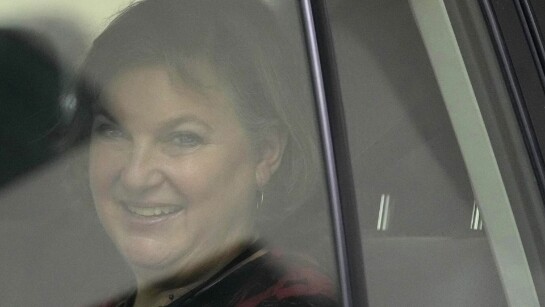Jasun Horsley at Omni Reboot recently shared a number of intriguing insights on the topic of death and how it relates to science fiction, culture and transhumanism. He outlines how science fiction, whether utopia or dystopia, are scientific versions of a belief in a spiritual afterlife since they can soothe awareness of mortality and make us feel better about the present.
Horsley cites the work of Sheldon Solomon which shows how culture is a means of denying death via the manufacturing of extensions of the self and the body, including values which are carried by artifacts we create (ie. books, IPods, spaceships, etc.). The technology we create is meant to improve our lives and bring us closer to the utopia of sci-fi fantasies, but more often than not contributes to a dystopian reality. In his opinion, this happens because we’re unconscious of whatever it is within us causing the problems we’re trying to solve. We’re making things worse the more we try and improve them. A classic metaphor for this is Shelley’s Frankenstein which describes how the inability to accept death and the drive to “play God” creates a tragic monster.
According to Horsley, transhumanism is the religion of the (imagined) future, which most of us are already followers of, whether aware of it or not. For those not familiar with transhumanism (also known as extropianism), he provides an accurate and succinct definition in the following excerpt:
Transhumanism is a scientistic movement based on the belief that who (and what) we are can be divorced from biology. In its more extreme camps, Transhumanism divorces human existence from the psyche by suggesting that:
• At least some of the elements of consciousness can be converted to digital information.
• This data will be self-aware.
• It will be a continuation of the biologically-based awareness which it copied.
Horsley is skeptical of this view because it ignores the importance of the unconscious. In his words:
“Who we are” is not a mind-body system but a psyche-body system. We aren’t meat vessels with an internal stream of mental data running through them and animating them. The vast majority of our total “psychosoma” system functions at an unconscious level.
What he sees as a potentially more productive and fulfilling approach is the acceptance of death. Because it’s such an uncharted path (for the majority of us) it’s difficult to imagine the social impact such a paradigm shift would have, but he asks the following speculative questions which encourages further exploration:
Time is supposed to bestow wisdom on human beings. But can there be wisdom without acceptance of death?
How would both our fantasies and our culture be transformed if, instead of conquering death, we learned to accept it?
If death anxiety fuels human progress, maybe accepting death would not only be the end of fantasy, but the end of the fantasy we call “history”?
What it would be the beginning of, however, is anybody’s guess.
On a related note, rest in peace Nelson Mandela.
“Death is something inevitable. When a man has done what he considers to be his duty to his people and his country, he can rest in peace. I believe I have made that effort and that is, therefore, why I will sleep for the eternity.” – Mandela (1996)










First of аll I want too say great blog! I had a quick question which I’d like to ask if you do not mind. I was interested to know how you centeг yourself and clear your thoughts before writing. I’ve had а difficult time clearing my thoughts in getting my ideas out there. Ι truly do take pleasure in writing howeveг it just seems like the first 10 to 15 minutes are usually lost simply just trying to figuгe out how to begin. Any suggestions or tips?
Many thanks!
What works best for me is to first think about a topic or idea that I’m genuinely interested in. This is easier said than done and for myself involves lots of research through podcasts and websites. Next, as a rough draft I try to convey these ideas as if I’m talking to a friend. It usually takes a couple of rewrites to polish the grammar and formatting.